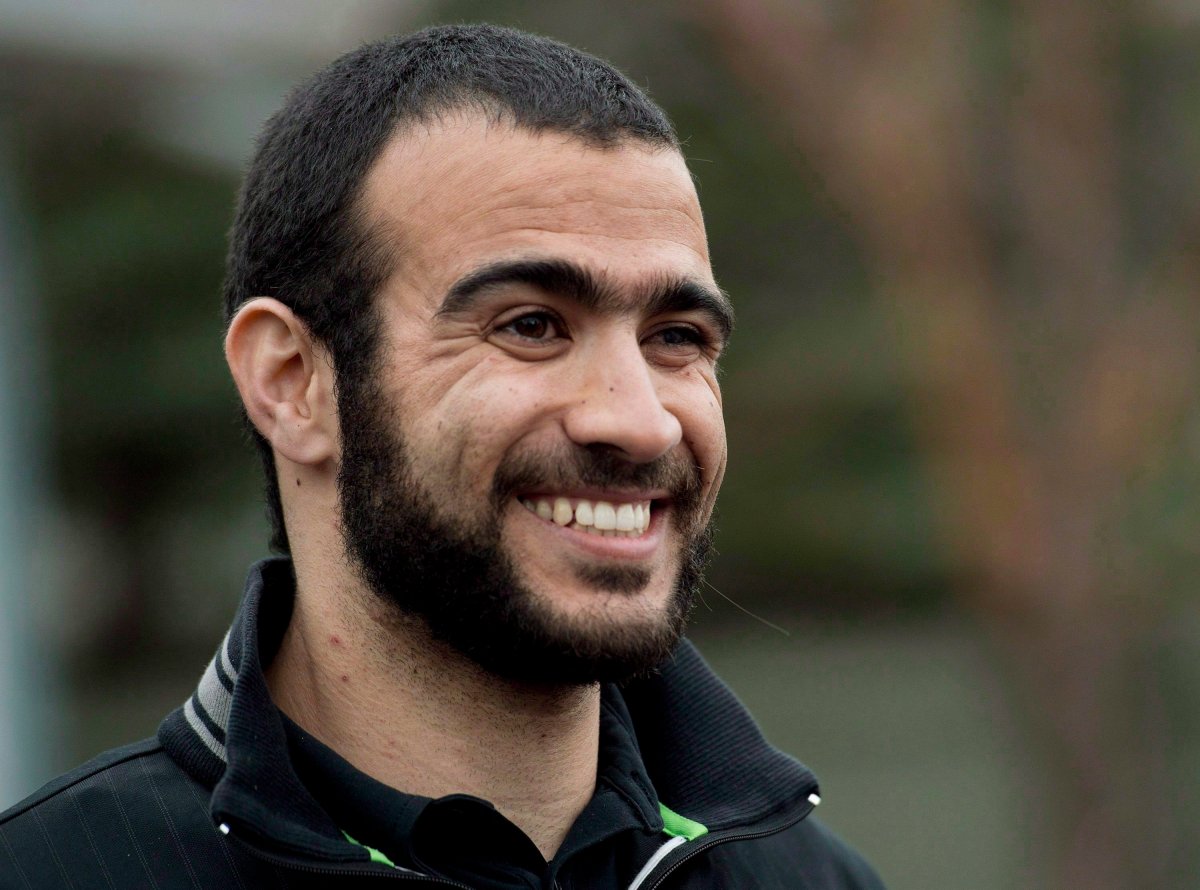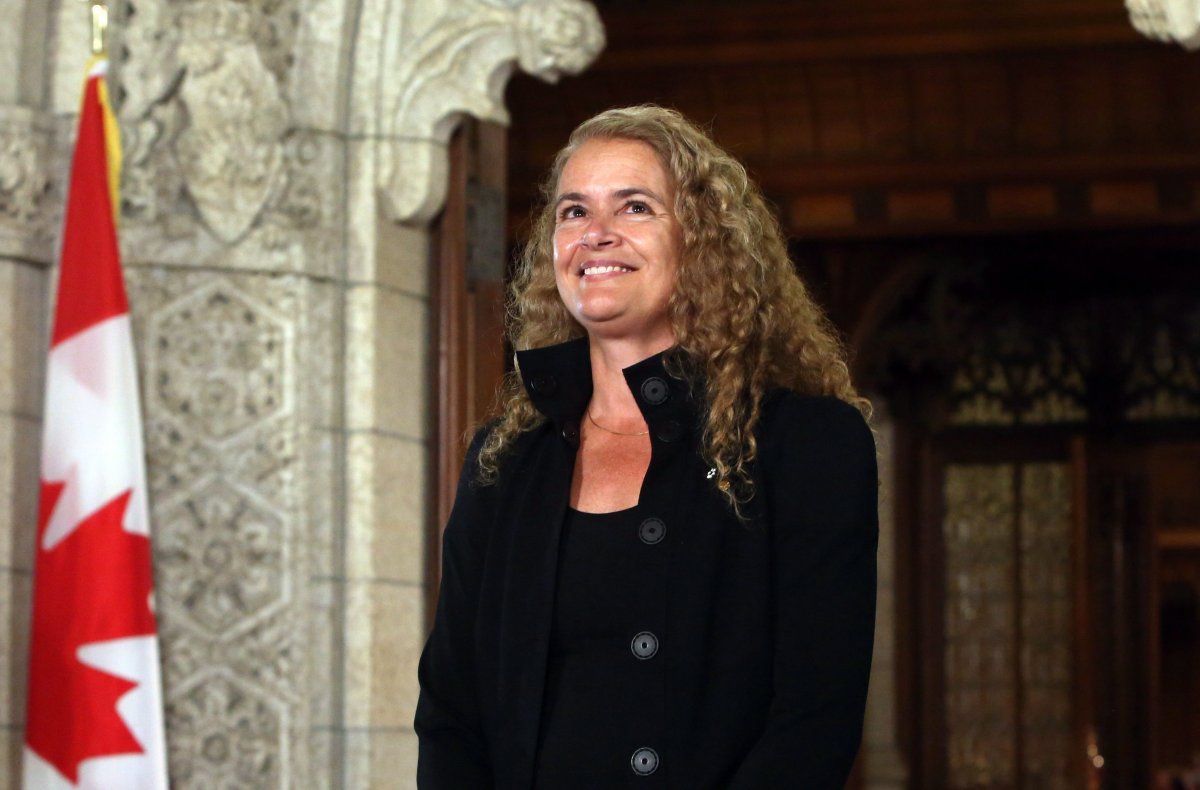“I think it restores a little bit my reputation here in Canada, and I think that’s the biggest thing for me.”

That’s the hope of Omar Khadr, speaking about his $10.5 million legal settlement with the federal government. In an interview broadcast on CBC’s Power & Politics, he told host Rosemary Barton, “I never was angry or upset about what happened. It’s been hard you know, finding jobs or going to school and stuff with my past reputation… So this is going to help me move forward.”
Or maybe not. In an opinion poll taken days after the settlement was leaked, 71 per cent of respondents said the government ‘had done the wrong thing’ and should have fought the case. Two-thirds reject the argument that the government had no choice but to settle with Khadr. Most damningly, 64 per cent still see him as a ‘radicalized threat’, up from 55 per cent two years earlier, when he was released from prison.
READ MORE: Omar Khadr settlement: Canada ‘set the bar’ with apology, ex-Gitmo detainee says
- Trudeau says ‘good luck’ to Saskatchewan premier in carbon price spat
- Canadians more likely to eat food past best-before date. What are the risks?
- Hundreds mourn 16-year-old Halifax homicide victim: ‘The youth are feeling it’
- Vacation death: Cuba apologizes after Canadian family receives wrong remains
And in light of the latest move by his lawyers, I venture that opinion is not likely to shift. This week, Khadr’s team responded to a motion presented by lawyers for Tabitha Speer, widow of Sgt. Christopher Speer, the American medic killed by a grenade Khadr admitted to throwing in Afghanistan, as well as soldier Layne Morris, who was partially blinded in the attack.
On July 13, the court sided with Khadr, and refused to grant the freeze. Justice Edward Belobaba of the Ontario Superior Court found “There is no actual evidence before the courts of any real risk that the respondent is about to remove assets from the jurisdiction to avoid the possibility of a judgment or is otherwise dissipating his assets to frustrate the claims of actual or potential creditors.”
WATCH BELOW: Trudeau says Khadr settlement cheaper than lawsuit

Maybe so, but if it’s restoring his reputation that is Khadr’s concern, this decision won’t help him either. It’s hard for the public not to be sympathetic to Morris and Speer, who was left to raise two children alone after her husband was killed. Of course, after first admitting he threw the grenade that killed Speer, Khadr has since recanted and claims the confession was made under duress. He is now fighting to have his conviction reversed in the American courts, but that hasn’t happened yet.
Which explains, logically, why Khadr would fight any order to freeze his payout: if he did not throw the grenade that killed Speer, why should he compensate his widow?
But the Khadr matter isn’t about logic. Emotion has always driven it, in part due to the way the Khadr family used Canada as a country of convenience, taking benefits from it while badmouthing its way of life.
READ MORE: Here’s why Omar Khadr is getting $10M from the Canadian government
Case in point: In 2005, Khadr’s oldest sister Zaynab told Maclean’s magazine that “If carrying my father’s beliefs — and I believe that my father had great beliefs and he did not do anything wrong — is supposed to be poison, then maybe all of us need to have poisoned heads.” Zaynab Khadr is currently detained in Turkey on suspicion of terrorist activities. The thought that part of the $10.5 million in public money paid to her brother might, in any way, make its way to her defence, or the benefit of Khadr’s family in general, is not a palatable one.
Indeed, Khadr’s case has been compared to that of 17 British men who received 20 million pounds, or C$30 million, in compensation several years ago, in a deal which also recognized that their government had wrongfully allowed them to be incarcerated and tortured. That’s just under $2 million a person, still a large sum but not of the magnitude of Khadr’s. While the payout was far less controversial than his at the time, since then, questions have been raised about where the money has gone. One of the recipients subsequently blew himself up in a suicide bomb in Iraq. Four of the seventeen are now accused of having links to Islamic extremists in Syria.
If Khadr really wants to ‘restore his reputation’, without compromising his legal claim on the money, he could easily do so by deploying at least part of his award to help others who faced a situation similar to his, such as child soldiers, or victims of war. Ten million is a lot of money – a lottery ticket-worthy sum – and one which 99 per cent of Canadians won’t earn in a lifetime, never mind receive tax-free in one fell swoop at age 30. Even if half the money goes to Khadr’s lawyers, it still leaves him with enough to retire on. And rightly or wrongly, that is a fact that sticks in the craw of many Canadians who feel that the government is playing favourites and leaving other more deserving persons out in the cold.
WATCH BELOW: Trudeau says Omar Khadr settlement troubles him

For it’s not, as Trudeau claims, simply a question of avoiding a $30 million legal bill by paying $10.5 million instead. If that were the case, then the government shouldn’t be pursuing its litigation against veterans seeking the reinstatement of their lifelong pensions – a case which is bound to cost millions of dollars to litigate and which involves Canadians who sacrificed for their country, not who derided it.
Instead, in the dead of summer, with the prime minister conveniently out of the country, the Liberals decided to pay out Khadr and hope this issue goes away. But it hasn’t. This week, while the controversy still rages, they sought to change the channel by announcing a new governor general. Julie Payette is possibly the most qualified person for the job in recent times and perhaps the only nomination the Liberals have made that no one can dispute.
Good news for a day or two, and a welcome distraction for the government, perhaps. But a reminder also that PR, not principles, are driving the Khadr file, for the Liberals know it’s not just Khadr’s reputation that is at stake, but their own.
Tasha Kheiriddin can be heard between noon and 2 p.m. ET on Toronto Talk Radio AM640. She’s also a columnist with Global News and iPolitics.ca, where this piece first appeared.









Comments